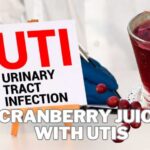
This article, titled “The Adverse Health Effects of Excessive Sugar Intake,” will examine the detrimental outcomes that can result from an excessive consumption of sugar.
Numerous adverse health conditions have been associated with excessive sugar consumption; therefore, it is crucial to discover alternatives to added carbohydrates. Natural sweeteners, including monk fruit extract, raw honey, fresh fruits, coconut sugar, pure maple syrup, and blackstrap molasses, furnish vital nutrients in addition to imparting flavor.
In addition to aiding in blood sugar regulation, these natural sweeteners also possess antioxidant properties. Nonetheless, specific sweeteners, such as agave nectar, sugar alcohols, and high-fructose corn syrup, must be utilized with extreme caution. In addition, practical suggestions for decreasing sugar consumption will be presented in this article.
These include refraining from adding sugar to meals and refreshments, substituting sugary beverages with water, minimizing sugar usage in baking, employing seasonings to enhance flavor, and comparing nutrition labels to identify options with lower sugar content.
Through the conclusion of this article, you will acquire significant knowledge regarding the implementation of more health-conscious practices regarding the consumption of sweeteners and the regulation of sugar intake, with the ultimate goal of improving one’s overall well-being.
The Adverse Health Consequences of Consuming Excessive Sugar
Preface to the
In modern society, excessive sugar consumption has emerged as a significant problem, with many people consuming significantly more sugar than is advised for optimal health. The objective of this article is to examine the detrimental health consequences that may result from the abuse of sugar. Through an analysis of the hazards linked to excessive sugar consumption, alongside an investigation of more nutritious substitutes and approaches to diminishing sugar consumption, readers shall acquire a thorough comprehension of the ramifications sugar can impose on one’s well-being.
Adverse Health Effects Linked to Excessive Sugar Consumption
An overabundance of sugar can result in a variety of adverse health effects. An elevated risk of obesity, the onset of type 2 diabetes, cardiovascular diseases, detrimental effects on dental health, a compromised immune system, mental health complications, inflammation, chronic illnesses, and hypertension are among the most significant hazards. It is of the utmost importance that individuals reduce their sugar consumption in light of this knowledge in order to safeguard their overall health and wellbeing.
Enhanced Peril of Obesity
Excessive sugar consumption has been associated with weight gain and an elevated susceptibility to obesity. Frequently high in calories, sugary foods and beverages can contribute to an energy imbalance and the development of excess body obesity. Moreover, research has demonstrated that sugar has an adverse effect on the body’s appetite and satiety signals, resulting in an overall increase in caloric intake.
Induction of type 2 diabetes
Type 2 diabetes is a persistent ailment distinguished by elevated levels of glucose in the blood. Ingestion of an excessive amount of sugar has been strongly associated with the onset of this condition. The liver may become overloaded with sugar when large quantities are consumed; the liver will then convert the surplus sugar into fat. This process has the potential to induce insulin resistance, thereby impeding the body’s ability to effectively regulate blood sugar levels.
Diseases of the cardiovascular system
Research has linked an excessive consumption of sugar to a heightened susceptibility to cardiovascular diseases. The consumption of diets high in sugar has the potential to cause an increase in triglycerides, a form of adipose tissue present in the blood. The combination of elevated triglyceride levels and additional risk factors linked to excessive sugar consumption may contribute to the onset of cardiovascular ailments such as heart disease and stroke.
Adverse Effects on Dental Health
The consumption of sugar may negatively impact dental health. By consuming saccharine foods and beverages, acids are produced when the sugar reacts with the microorganisms in our mouths. Enamel erosion caused by these acids can result in tooth decay and cavities. Consistent and excessive consumption of sugar may ultimately lead to enduring harm to one’s dental health.
Inadequate Immune System
Research has demonstrated that consuming a diet high in sugar compromises immune function, rendering people more vulnerable to infections and diseases. A surplus of sugar in one’s diet may compromise the functionality of white blood cells, an essential immune system component that protects the body from hazardous pathogens. Moreover, an overabundance of sugar can induce an inflammatory reaction that can further undermine the immune system’s capacity to combat infections.
Mental Health Difficulties
Excessive sugar consumption may also have detrimental effects on mental health, according to research. Elevated sugar intake has been correlated with a heightened susceptibility to melancholy, anxiety, and various other mood disorders. Sugar consumption has the potential to elicit addictive behaviors and may contribute to the disruption of brain substances that are responsible for regulating mood.
The relationship between inflammation and chronic diseases
Prolonged inflammation within the body constitutes chronic inflammation, a detrimental condition that is linked to the onset of numerous chronic diseases. An overconsumption of sugar induces inflammation within the body, which elevates the likelihood of developing ailments including cardiovascular disease, cancer, and autoimmune disorders. Individuals can potentially mitigate the risk of developing chronic inflammation and associated diseases by adopting a reduced sugar intake.
Angiotic Blood Pressure
Sufficient consumption of sugar has been associated with heightened levels of blood pressure. Diets high in sugar are associated with weight gain and an elevated risk of developing hypertension, which is defined as the abnormally high pressure of the blood. Heart disease, stroke, and kidney issues are a few of the severe health complications that can result from hypertension.
Alternatives to Added Sugar
Although it is essential to reduce sugar consumption in order to maintain good health, some people may continue to desire sugary foods. Fortunately, there exist more nutritious substitutes for added carbohydrates that can simultaneously impart the intended sweetness and vital nutrients.
Natural Sweeteners as an Alternative That Is Healthier
Natural sweeteners are an excellent substitute for added carbohydrates and should be incorporated into one’s diet. Natural sweeteners, including monk fruit extract, raw honey, coconut sugar, raw fruits, and blackstrap molasses, provide an alternative method of indulging in sweets while avoiding the adverse health consequences linked to excessive sugar consumption.
The Positive Aspects of Natural Sweeteners
In addition to imparting flavor, natural sweeteners also supply vital nutrients. An illustration of this can be found in the vitamin, mineral, and fiber content of fresh fruits, which contribute to their comprehensive nutritional composition. In a similar vein, blackstrap molasses, monk fruit extract, raw honey, pure maple syrup, and coconut sugar all contain compounds that are advantageous to overall health.
Frozen Fruits
Fresh fruits are an excellent option for natural sweeteners. In addition to imparting inherent flavor, they comprise a diverse assortment of essential vitamins, minerals, and antioxidants. Fruits can impart a gratifying flavor to meals and treats, in addition to promoting health and nutrition.
Monk Fruit Syrup
Deriving from a small, melon-like green fruit, monk fruit extract is gaining popularity as a natural sweetener. This extract does not contain any calories and has no impact on blood sugar levels, rendering it appropriate for individuals with diabetes or those seeking to decrease their sugar consumption. Monk fruit extract can be utilized as an alternative to sugar in a variety of preparations.
Pure Honey
Hulking in enzymes and antioxidants, raw honey is an additional excellent natural sweetener. It has a robust flavor and can be applied to fruit or yogurt, baked goods, or even simply drizzled over them. However, it is crucial to acknowledge that despite its natural composition, honey remains calorically dense and ought to be utilized sparingly.
Maple Syrup Pure
Pure maple syrup is an all-natural sweetening agent derived from maple tree juice. In addition to vitamins, minerals, and antioxidants, it has a flavor that is both distinct and delectable. Pure maple syrup has a wide range of applications, including coating pancakes, waffles, or oatmeal and sweetening numerous recipes.
Coconut Sweetener
Sap from coconut palm trees is utilized in the production of coconut sugar. In contrast to refined sugar, its glycemic index is lower, indicating that it exerts a more modest influence on blood glucose levels. In the majority of recipes, coconut sugar can be used in place of conventional sugar one-to-one, making it a convenient and healthful alternative for sweetening foods and beverages.
Morganza blackstrap
A dark, viscous fluid, blackstrap molasses is an undesirable byproduct of the sugar refining procedure. It contains an abundance of calcium, iron, and additional minerals. Blackstrap molasses can be utilized in confection toppings, marinades, and baking to impart a distinctive flavor to food.
Controlling Blood Glucose Levels
Natural stimulants have the potential to assist in the regulation of blood sugar levels. In contrast to refined carbohydrates, which have the potential to induce fluctuations in blood sugar levels, natural sweeteners provide a more gradual and consistent supply of energy. This may offer notable benefits to individuals who have diabetes or are striving to regulate their blood sugar levels.
Antioxidant Characteristics
Antioxidants are present in numerous natural sweeteners, including unprocessed honey, unadulterated maple syrup, and blackstrap molasses. Antioxidants aid in safeguarding the body against the deleterious consequences of free radicals, which are unstable molecules implicated in a multitude of diseases and the aging process.
Sweeteners to Restrict or Avoid
Although natural sweeteners may present a more healthful substitute for added carbohydrates, there remain certain sweeteners that individuals ought to restrict or abstain from on account of the potential adverse health consequences they may cause.
Vegetable Agave Nectar
Agave nectar, which is frequently promoted as a natural sweetener, is in fact a highly processed substance that is rich in fructose. Agave nectar overconsumption has the potential to induce metabolic complications, such as fatty liver disease and insulin resistance. When possible, natural sweeteners with a reduced fructose content should be utilized.
Sugar-Based Alcohols
In sugar-free or “diet” products, sugar alcohols such as xylitol, sorbitol, and erythritol are frequently employed as low-calorie sweeteners. While sugar alcohols are comparatively lower in calories and exert a lesser influence on blood sugar levels than regular sugar, excessive consumption can lead to digestive complications and potentially induce laxative effects.
Syrup of high-fructose corn
High-fructose corn syrup (HFCS) is a prevalent sweetening agent that is included in sweetened beverages and manufactured foods. Due to its low cost of production and high sweetness, it finds extensive application in the food industry. HFCS has been associated with obesity, metabolic disorders, and additional detrimental health conditions. Limiting or avoiding products that contain this ingredient is advised.
Suggestions for Minimizing Sugar Consumption
It can be difficult to reduce sugar consumption, given the abundance of sugary foods and beverages available in modern society. Persons can, nevertheless, better their overall health and progressively reduce their sugar intake by implementing a number of practical strategies.
Sugar should be avoided in meals and snacks.
A successful approach to decreasing sugar consumption is to abstain from the practice of supplementing sugar to meals and refreshments. As an alternative, one may avail themselves of natural sweeteners, such as freshly squeezed cinnamon or fresh fruits, to impart flavor without exceeding the prescribed sugar threshold.
Water is preferable to sugary drinks, which are significant contributors to an excessive sugar intake. By substituting water or unsweetened beverages for sodas and other sugary drinks, individuals can effectively mitigate their sugar intake while maintaining proper hydration.
Sugar Reduction in Baking
When engaging in home baking, it is advisable to contemplate decreasing the quantity of sugar specified in recipes. Quite frequently, a delectable and gratifying outcome can be achieved with a reduced amount of sugar. Conduct experiments using alternative sweeteners or integrate the inherent sweetness found in fruits.
Implement Spices for Taste
Without adding sugar, spices such as cinnamon, nutmeg, and vanilla extract can impart sweetness and complexity to dishes. Spice experimentation has the potential to augment the tastes of dishes while decreasing dependence on sugar as a flavor enhancer.
Compare Nutrition Labels to Identify Options with Less Sugar
Compare the nutritional information labels of the products you are purchasing in order to identify those with the lowest sugar content. Select foods and beverages that are naturally sweetened or do not contain any added sweeteners, as opposed to those that contain minimal to no added sugar.
In summary, an excessive consumption of sugar can lead to various detrimental health consequences, such as heightened susceptibility to obesity, diabetes, cardiovascular ailments, and dental complications. Conversely, individuals can safeguard their health and wellbeing by adopting strategies to decrease their sugar consumption and integrating natural sweeteners into their dietary regimens. We can take charge of our health and move toward a healthier future by exercising discernment and knowledge regarding the potential hazards linked to an overabundance of sugar.










